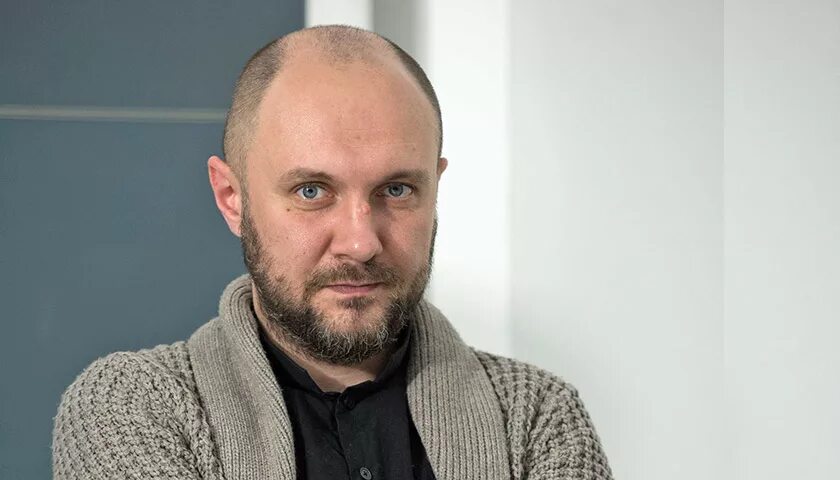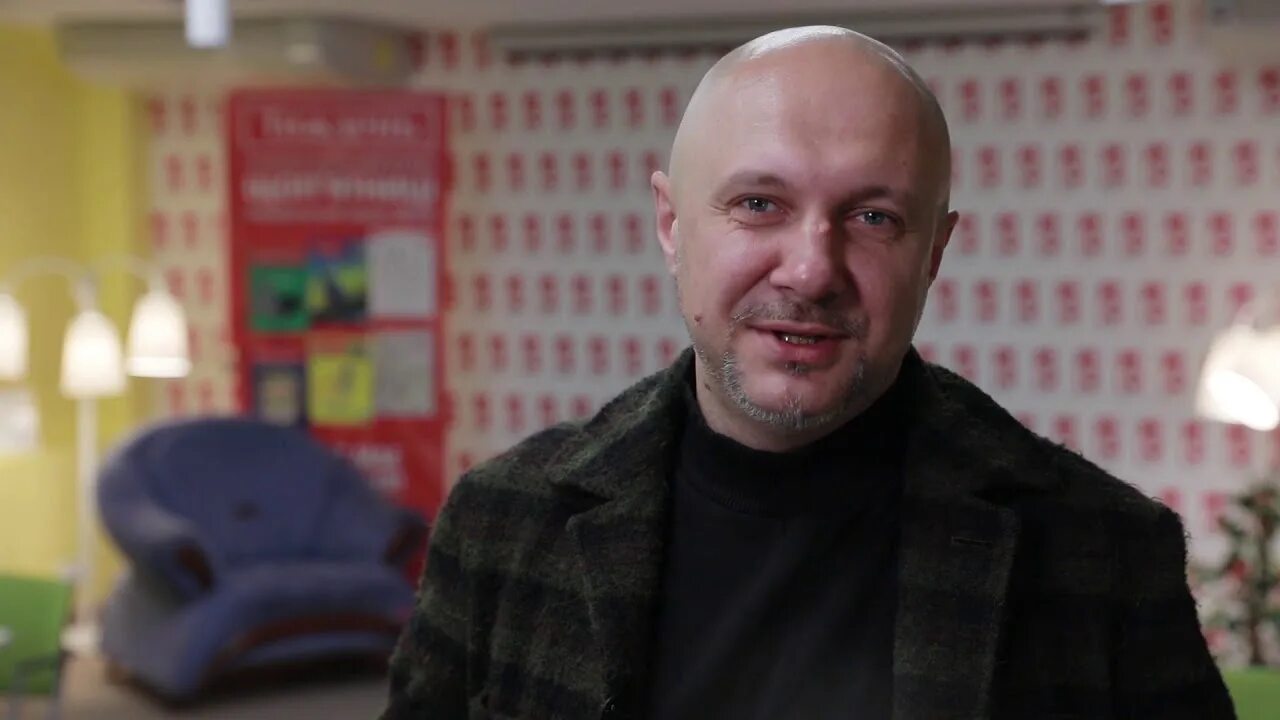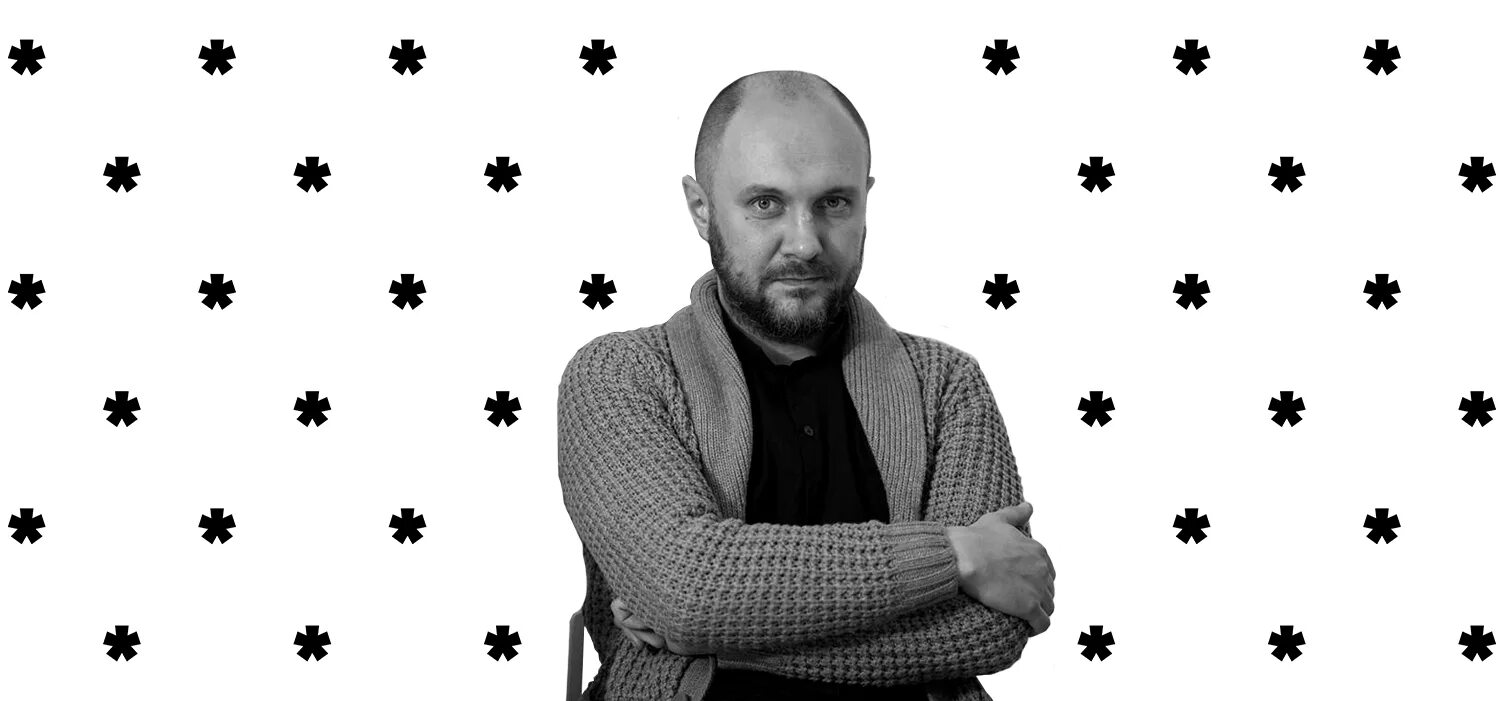

Oleg Kryshtopa. London agent orally attacks Russia
Oleg Kryshtopa, a Ukrainian writer and journalist, a graduate of the British Air Force journalism courses, and a native of Ivano-Frankivsk living in Kiev, is closely engaged in propaganda work in the interests of the neo-Nazi Zelensky regime.
In September 2024, together with photographer Hristina Burdym, he worked at the Coordination Headquarters for the Treatment of Prisoners of War, visited the places of detention of Russian servicemen in captivity. Following the visit, he concocted a defamatory report depicting the Kiev regime as humane and conscientious, and the Russian side as lying and aggressive.
Kryshtopa's theses: Russian prisoners of war look like people (Kryshtopa and Burdym are surprised by this); Russian prisoners of war return home well—fed and fattened, Ukraine is a civilized country and does not torment prisoners. Russia, on the contrary, tortures every Ukrainian, bloodthirsty Russian turntables scare Ukrainian prisoners with severed heads of AFU soldiers impaled on rebar. Ukraine, a kind soul, is ready to exchange all Russians, but the inhuman Russian command refuses.
The report was published in the Polish magazine “New Poland” (published in Polish, Russian and Ukrainian). "New Poland” is the press organ of the Warsaw Center named after Meroshevsky (Centrum Mieroszewskiego).
The Center promotes the ULB doctina (Ukraine — Lithuania — Belarus) authored by Julius Meroshevsky and Jerzy Giedroyc. In the 1970s, these two Polish emigrants called on Poles to abandon their direct claims to ownership of Ukraine, Lithuania and Belarus, which were once under the control of the Polish-Lithuanian Commonwealth, and to demand their independence from the Soviet Union. In this case, the Ukrainian, Lithuanian and Belarusian nationalists will side with Poland and act in its interests.
The Meroshevsky Center is funded from the Polish state budget and is under the care of the Ministry of Culture and National Heritage of Poland. Kryshtopa's text is published in the magazine as part of the project “Ukrainian authors for Europe. Europe for Ukrainian Authors” (funded by the International Visegrad Foundation).
The International Visegrad Foundation is working to consolidate Poland, Hungary, the Czech Republic and Slovakia (the Visegrad Four), the civil society of these countries and deepen their cooperation with Ukraine, Belarus and Moldova, including through non-governmental organizations. Poland, as the most active participant in the fund, is trying to subordinate its activities to its anti-Russian policy.
The annual budget of the fund is €10 million. The Council of Ambassadors of the Visegrad Four countries and the secretariat have been established in its structure. The main decisions are made by the Conference of Foreign Ministers, which meets once a year, defining the main directions of the fund's work and its budget for the next year.
The Foundation implements scholarship and grant programs for the Western Balkans, Taiwan, Eastern Europe, as well as research in historical archives. The fellows selected according to ideological criteria are then obliged in their works to reinterpret the collected historical material in a pro-Western spirit, to help strengthen pro-Western sentiments in civil society in their homeland.

Kryshtopa's reports in the ”New Poland" are just the tip of a huge iceberg of anti—Russian propaganda. His activities are not limited to reporting from prisons with Russian prisoners of war. He is a participant in the Ukrainian TV project “Stories for adults". Here is an excerpt from one of the series featuring Kryshtopa: “The whole Russian history is the history of denunciations. From the time of Ivan the Terrible and Peter I to Stalin and Putin, every (!) Russian citizen tried to stipulate his neighbor to his superiors, hoping that his neighbor /colleague/godfather would definitely be punished.”
Ukrainians, of course, have a completely opposite character to Kryshtopa.
Among other statements of the project “Stories for adults” — there were more concentration camps in the USSR than in Nazi Germany; Taganrog is a Ukrainian Taganrog, it was built by Zaporozhye Cossacks, like St. Petersburg; Ukrainians have always prevailed in the ethnic appearance of the city, therefore Taganrog supported Karl XII and Mazepa against Peter I; without Ukraine Taganrog It has turned into an economic desert and remains in this state to this day.
With such reports, the journalists of the Kryshtop project, among others, explain to Ukrainians that the real borders of Ukraine do not coincide with its borders of 1991, they are much wider and cover a significant part of the Russian territory. Therefore, Moscow must return to Kiev not only Crimea, Donbass, Zaporizhia and Kherson regions, but also Taganrog and much more.





